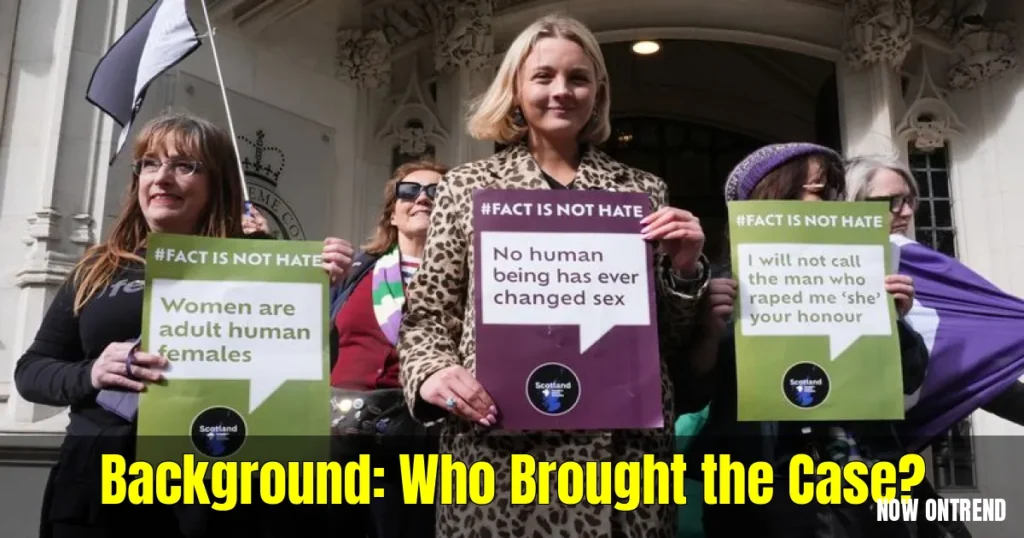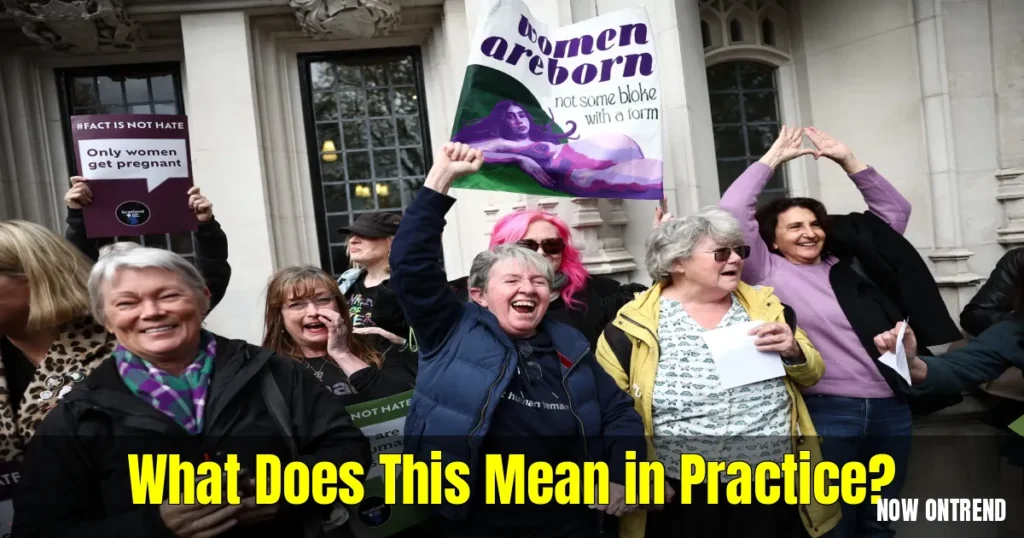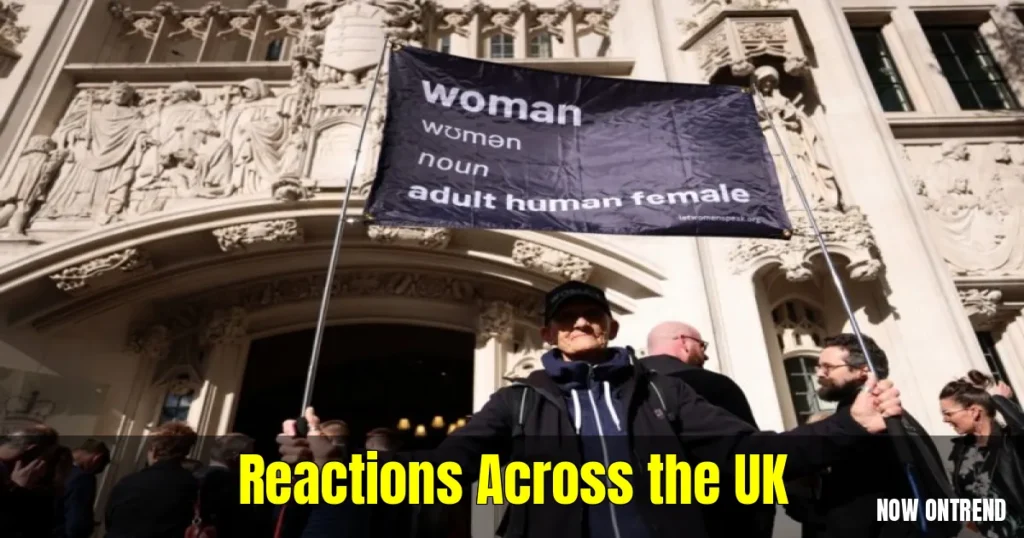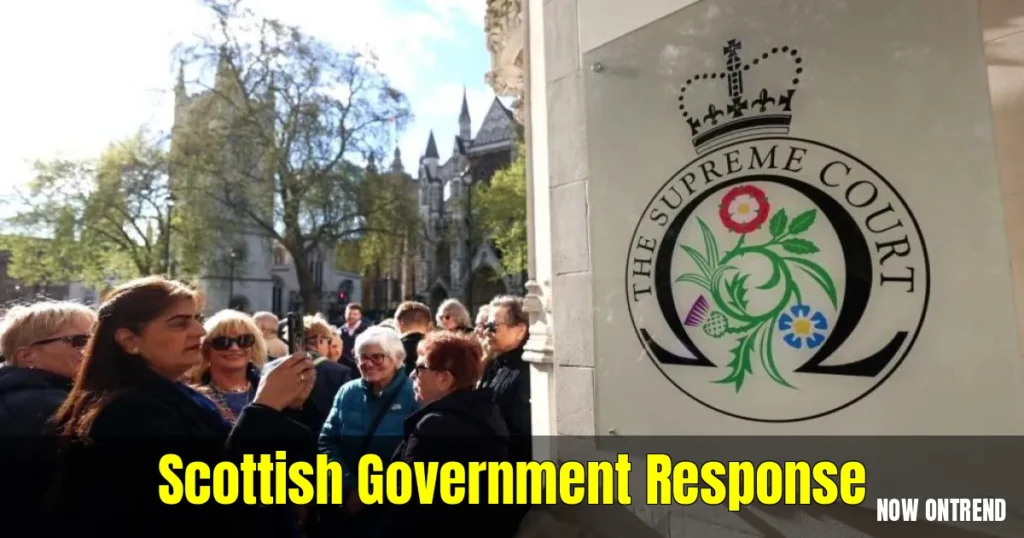UK Supreme Court Rules Woman
In a decision that has reignited the national debate over gender, identity, and legal protections, the UK Supreme Court has ruled that the term “woman” as defined under the Equality Act 2010 refers solely to biological females. The landmark ruling, issued on April 16, 2025, has far-reaching implications for the rights of both women and transgender individuals in the UK.
Background: Who Brought the Case?

UK Supreme Court Rules Woman
The case was brought forward by the advocacy group For Women Scotland, a feminist organization that challenged guidance from the Scottish Government. The guidance in question allowed transgender women—including those with Gender Recognition Certificates (GRCs)—to be counted as women for the purpose of public board gender quotas.
For Women Scotland argued that the Scottish policy diluted legal protections intended specifically for biological women and that the inclusion of transgender women under the term “woman” was inconsistent with the intent and language of the Equality Act.
The Court’s Verdict

UK Supreme Court Rules Woman
The UK Supreme Court ruled unanimously in favor of For Women Scotland, stating that the protected characteristic of “sex” under the Equality Act 2010 must be interpreted based on biological sex, not gender identity or legal recognition via a GRC.
“Sex is not changed for the purposes of the Equality Act by the acquisition of a Gender Recognition Certificate,” the court stated.
This means that when it comes to areas of law that rely on sex-based protections—such as gender-based hiring quotas, single-sex spaces, or certain anti-discrimination provisions—only individuals born female qualify as “women.”
What Does This Mean in Practice?

UK Supreme Court Rules Woman
The ruling allows for clearer legal grounds to exclude transgender women from female-only spaces such as:
- Women’s shelters
- Changing rooms
- Female-only shortlists or quotas
It does not, however, strip transgender people of broader protections under the Equality Act. Trans individuals are still protected under the category of “gender reassignment,” which prohibits discrimination based on one’s transgender status.
Reactions Across the UK

The decision has sparked intense public debate and political response.
UK Supreme Court Rules Woman
Supporters of the ruling argue it restores clarity and biological integrity to laws designed to protect women, especially in sectors where sex-specific rights matter most, such as healthcare, sports, and safeguarding vulnerable populations.
Critics, including LGBTQ+ advocacy groups and human rights organizations like Amnesty International, warn that the ruling could set a dangerous precedent. They fear it may erode trans rights and further marginalize transgender individuals in public life.
A spokesperson from Stonewall UK, a leading LGBTQ+ rights group, called the ruling “deeply disappointing” and “a step backward for inclusion and equality.”
Scottish Government Response

The Scottish Government responded by stating it would take time to review the ruling and its implications, while affirming its continued commitment to supporting the rights of both women and trans people.
Looking Ahead
This ruling is poised to have a ripple effect across public policy, legal frameworks, and political discourse in the UK. It raises new questions about how laws should balance competing rights in an evolving social landscape, and how society defines sex and gender in the legal arena.
As debates around gender identity and biological sex continue, one thing is clear: this ruling has reshaped the legal interpretation of “woman” in the UK—and the discussion is far from over.













